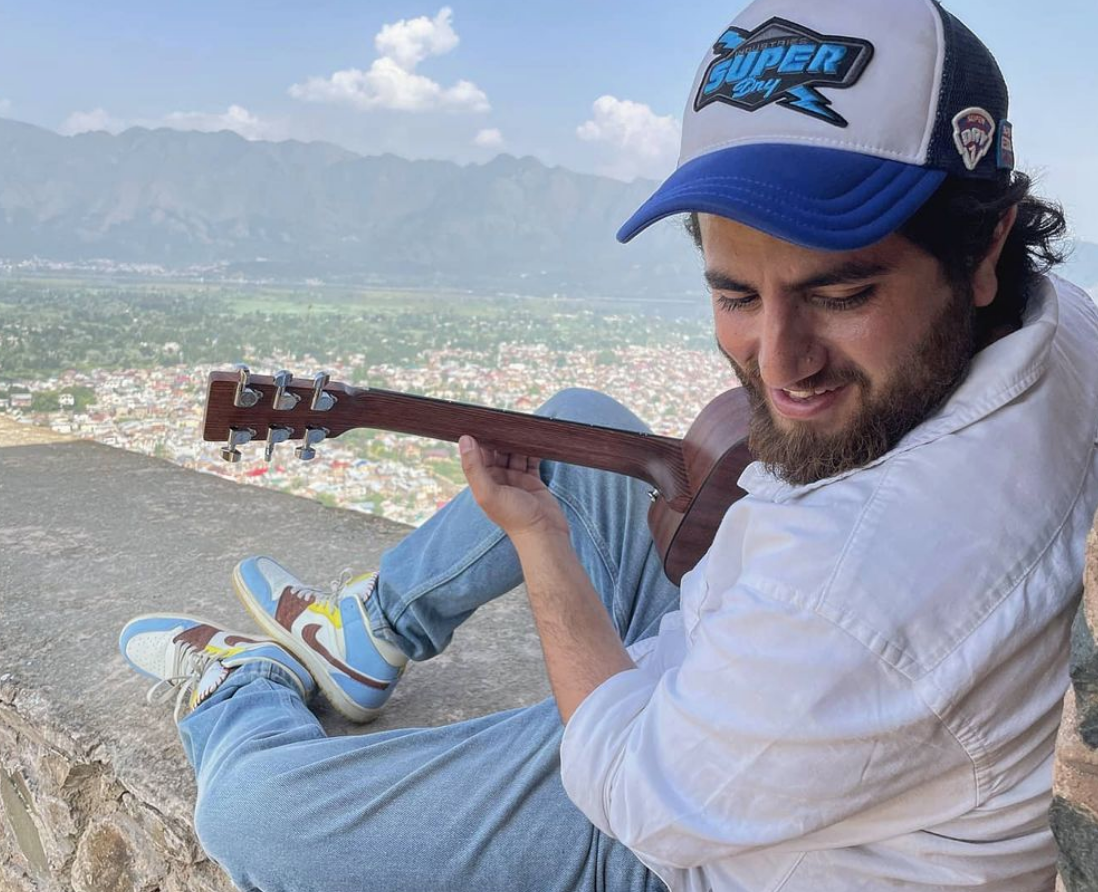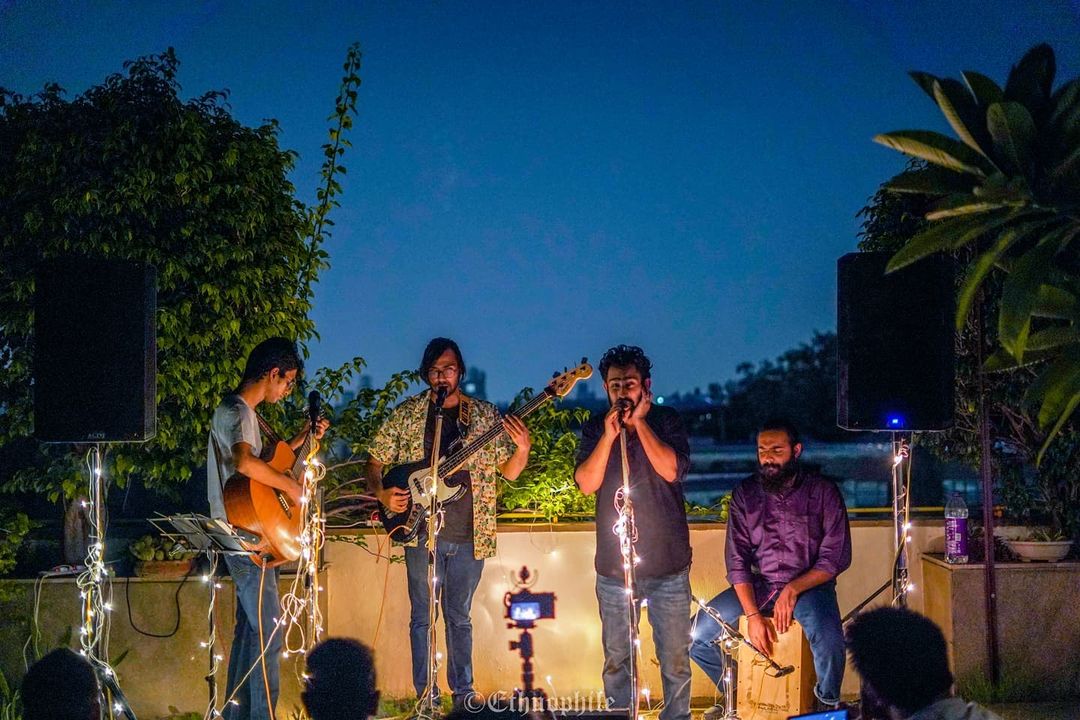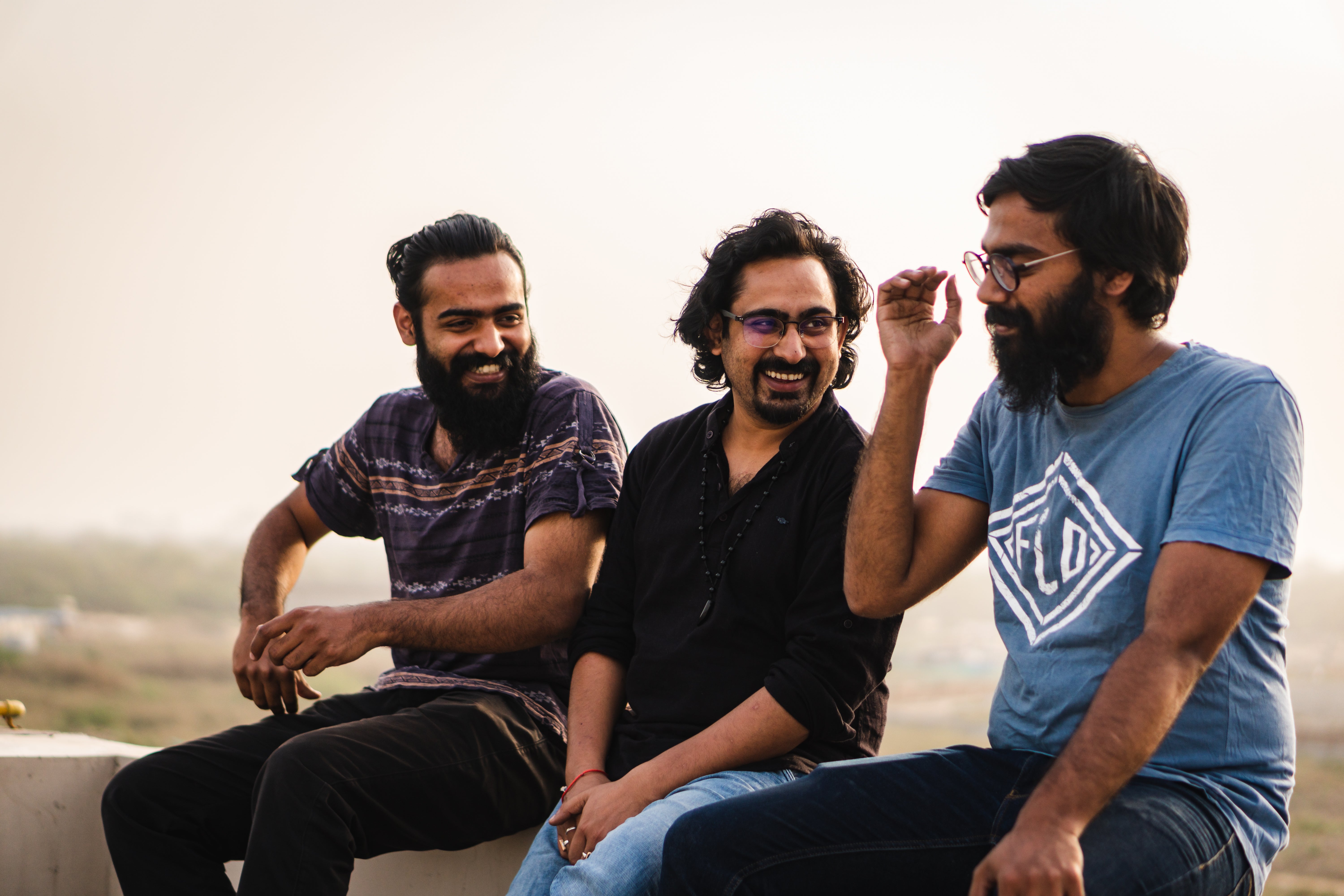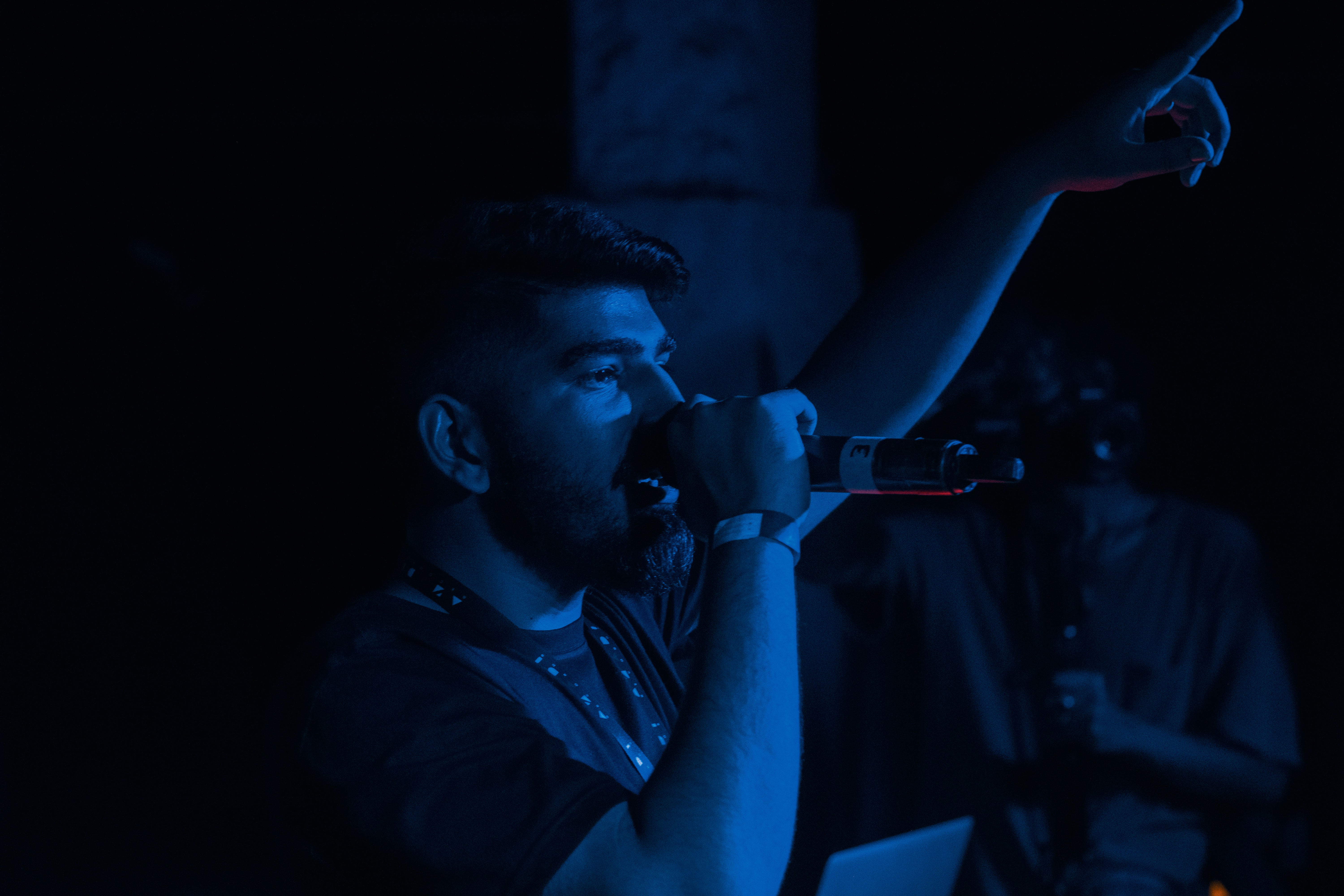‘We are trying to be the voice of our people’: Inside the new wave of Kashmir protest music
In the face of increasing suppression and silencing, an emerging group of artists are attempting to draw attention to the reality of people caught between two nations. Shaswata Kundu Chaudhuri speaks to the passionate few making music against the odds

Your support helps us to tell the story
From reproductive rights to climate change to Big Tech, The Independent is on the ground when the story is developing. Whether it's investigating the financials of Elon Musk's pro-Trump PAC or producing our latest documentary, 'The A Word', which shines a light on the American women fighting for reproductive rights, we know how important it is to parse out the facts from the messaging.
At such a critical moment in US history, we need reporters on the ground. Your donation allows us to keep sending journalists to speak to both sides of the story.
The Independent is trusted by Americans across the entire political spectrum. And unlike many other quality news outlets, we choose not to lock Americans out of our reporting and analysis with paywalls. We believe quality journalism should be available to everyone, paid for by those who can afford it.
Your support makes all the difference.Reham karain”: this Urdu phrase, translating to “have mercy”, is an overused dialogue in Indian films, usually in scenes when powerless individuals find themselves ensnared in the evil designs of the villain. Similarly, for the native people of Kashmir, one of the most heavily militarised zones in the world and the subject of a dispute between India and Pakistan since 1947, this phrase is an unheard, unheeded plea. It is also the name of a song.
Written by the poet Zeeshan Jaipuri and sung by rocker Ali Saffudin, “Reham Karain” is a heart-wrenching record of life in the valley, released independently in February earlier this year. Widows, orphans, grieving mothers, drug abusers and pellet-riddled faces of young men are the real-life characters portrayed in the music video, persecuted by baton-wielding men in military boots and riot gear. The guitar-driven rock music carries the heaviness of the theme in its resounding chords.
Such broken life is a direct result of three decades of turmoil in the valley. But now a new wave of Kashmiri musicians are giving voice to their reality, with artists like Saffudin, Alif and Ramooz bringing rock into the fray. The hip-hop scene especially has seen tremendous growth in the last couple of years with the advent of rappers like Qafilah, Ahmer, SXR and the duo SOS (Straight Outta Srinagar), who sing about living in the shadow of violence.
Saffudin, 29, was inspired to write protest numbers after being beaten up by security forces for stone pelting (the act of throwing stones at Indian forces and Jammu and Kashmir police) when he was a teenager. His songs blend Kashmiri folk with big, bold guitar riffs, as on his 2020 compilation album Home Recordings. His lyrics are unsparing: take for instance, on “Tum Kitne Jawan Maroge”, written during the inflamed civil unrest in 2016 after the killing of militant leader Burhan Wani, who was viewed as a terrorist by the Indian government. His death in a gun battle with the Indian military was perceived to be a state killing and brought numerous Kashmiri youths onto the streets, resulting in a civilian uprising in which over 120 civilians were shot dead, according to a report by The Diplomat.
Saffudin reflects on the needless killing of young Kashmiris, singing in Urdu: “How many youth will you kill, from every home a youth will come out/ The blood which flows in the veins, will rise into a frenzy, madness.”
Kashmiri identity, he says over the phone from Srinagar, one of the largest cities in the region, is at stake. “Indigenous cultures face the threat of globalisation – the things we inherited from our ancestors are getting constantly erased by new information explosions,” he says. “Another factor is the political conflict, as India has not acknowledged Kashmir as a state.” (The Indian government withdrew Jammu and Kashmir’s statehood in August 2019, dividing it up into two federally governed territories).
On 5 August 2019, bloodied during the Partition in the first game of these nations, Kashmir was stripped of its safety token – Article 370, a clause in India’s constitution guaranteeing Kashmir special status and greater autonomy. Thousands of additional troops were brought in, political leaders were placed under house arrest, a curfew was enforced, the valley was completely locked down, and a communications embargo was put up – no phones and no internet for two months.
Land, which was earlier impossible for non-Kashmiris to buy, is up for grabs. This opens up the valley for a resettlement policy where mainlanders might be given incentives to shift there, in effect making Kashmir more vulnerable to exploitation – both economically and for resources. The government has described this as a necessary step to bring external investment, and with it economic development, to the valley and its people.

“There are things happening every day that Kashmiri people don’t want,” says rapper Ahmer, pointing the finger at state machinery. “Resources are dying.” He gave Kashmiri resistance music its much-needed impetus with his blistering debut album Small Kid, Big Dreams in 2019, which draws upon the experiences of his own family.
The entire album is a hard-hitting retort to the “picture” of Kashmir that is projected to the outside world – he talks about murders, rapes, abductions and human-rights violations in nearly every song. Take his track “Elaan”, in which he sings in Urdu:“Where do I come from? The most dangerous place on this planet/ Justice, they deny it, violations bring them joy, here/ If you lick their boots, you are safe, you support the truth, you’re punished.”
The music, conjured up by producer Sez on the Beat, has a dark, dissonant feel. It’s also vivid. Amidst the searing pain of his record, you can almost sense Kashmir’s chinar trees, ice-flecked mountains and the charm that captured Sufi mystics aeons ago.
Naturally, tourists also flock to the region. The growing culture of tourism after the abrogation of Article 370 gives a facade of normalcy, so that outsiders who visit Kashmir won’t get an inkling of how bad things are, adds Ahmer. “There is a manufactured alternate reality,” he says. “Otherwise, [the government’s] agenda” – ie, “showing normalcy” in Kashmir – “would fall apart.”

But the actual chaos of life in Kashmir brings about a pervading sense of fear among its residents. Coupled with horrible economic conditions and the devastating impact of the pandemic, its cultural life in particular has taken a severe beating. Traditional forms of Kashmiri folk music have been pushed to the sidelines, with only weddings offering regular employment to its players.
Even Kashmiri, the local language, is wilting under the shadow of dominant languages like Urdu and English. “One of the biggest hazards of being a nation which is being colonised or occupied is that its identity is at stake and the language becomes its first hazard,” says Saffudin, who sings in Kashmiri and Urdu. “To instil pride about your language, there should be some contemporariness attached to it to get across to the youth, and at the same time, not be erased of its roots. I believe my music attaches a sense of pride with identifying as a Kashmiri.”
Older generations thought that if their kids grew up speaking English, they would have a better chance for survival and opportunities in the global world. So, Kashmiri became almost taboo, seen as uncultured. But the new renaissance of Kashmiri music is gradually changing that.
I believe my music attaches a sense of pride with identifying as a Kashmiri
The man who started this wave of resistance music is Roushan Illahi, better known as MC Kash. In 2010, he dropped an incendiary number called “I Protest”, which became an overnight hit on YouTube. Sung in English to reach an audience outside Kashmir, it narrated the bitter ground reality in Kashmir, which many people outside knew not much about.
The song goes: “I protest against the things you’ve done/ I protest for a mother who lost her son/ I protest for my brother who’s dead/ I protest against the bullet in his head/ I protest, I will throw stones and never run/ I protest until my freedom has come.”
Security forces subsequently raided the studio in which the song was recorded, and it was taken down from YouTube – though fan-made videos still exist. Today, MC Kash doesn’t make music anymore. Ahmer’s album has a track called “Roushan”, which includes a recording of an interview where MC Kash divulges how his music and voice has been suppressed. All the artists interviewed for this piece say that Kash faced brutal harassment, and that other people became scared of being associated with him. This in turn deterred other Kashmiri artists from making hip-hop music, until Ahmer arrived on the scene. But asked if he is afraid of facing a similar fate, Ahmer is quick to reply: “If I was afraid, I would not be doing what I am doing.”
In the meantime, two rock bands – the Bangalore-based Parvaaz and the Pune-based Alif – began generating interest in music in the Kashmiri language, and consequently about life there, across India. Their Urdu and Kashmiri compositions were a novelty; Parvaaz especially found a massive following.
Alif banked on the mysticism of Kashmiri poetry mixing with soulful rock music. Though not as confrontational as those of his rapper peers, Alif’s songs tap into the human condition, looking at how the people survive despite the brutality of life in the valley.

Two songs that really struck a chord with Kashmiris are “Jhelumus” and “Ikebana”. The former is about the strength of women and how they stand strong despite all that they have faced; the latter is about taking people and dreams for granted.
Though inherently personal, both hint at larger pictures of Kashmiri society, reflecting upon death, loss and the resilience of people who have to suffer the consequences of those losses. But the most eye-opening composition of Alif’s is undoubtedly ‘“Malaal Kya Hua”, from their debut album Sufayed (2017), which deals with depression and mental-health issues.
“Depression is in Kashmir’s air, especially PTSD,” says 26-year-old rapper Qafilah, himself a huge fan of “Malaal Kya Hua”. Though he has released only three songs, Qafilah doesn’t shy away from calling out injustices in his music either. The chorus of his song “Faraar” goes like this: “Naa mein gulam tera/ Naa mein gaddar’ (I’m not your puppet/ Nor a traitor)”, which is an undisguised message to the powers that be that he will not bow. “You can oppress someone to the point that you shut them up, but you can’t break them or change what’s in their hearts,” he says.
But while there is a new confidence around Kashmiri music, it’s hard for those musicians to break through on a wider scale. “Most of the Kashmiris don’t care about artists,” says Qafilah, who is part of the Koshur Collective, consisting of Kashmiri rappers who speak truth to power. “People here live within themselves, look after themselves – it’s nuclear, isolating. Here, if you survive the day, that’s a big thing. Nobody has much time for arts.” He adds that their goal is to make Kashmiri language and culture popular.
Most of the Kashmiris don’t care about artists
But the biggest barrier against the propagation of this music is invisible. Several artists told me that shadow banning – a subversive method of blocking someone’s content on online platforms so as to limit its potential reach, while the person remains unaware of it happening – has been implemented by the authorities to undermine their songs and not let it reach audiences. A report by the Jammu Kashmir Coalition of Civil Society called Kashmir’s Internet Siege states that shadow bans are one of the various tools implemented in the digital rights violations in Kashmir, “resulting in a silencing and erasure of ordinary Kashmiris’ human rights, opportunities, and aspirations”. Besides complete digital bans, high-speed internet and data was also restricted to 2G speeds in Kashmir for most of last year, in the middle of a pandemic (the Kashmiri authorities were contacted several times by The Independent for comment on the accusation of shadow banning, but declined to respond).
The dearth of venues is another setback; barring a few cafes, these musicians don’t have places to perform and spread this music. “Venues are wary of hosting us because of the content of our music,” informs Qafilah. The big halls with proper setups are mostly government owned which obviously is a big deterrent.
A recent New York Times article also reported a crackdown on Kashmiri poets who write about resistance or speak out about being under threat. Some poets were even said to have been called in for questioning by the police, pointing to a muzzling of the freedom of speech and expression, which means that these artists might not be speaking so openly about their experiences for too long.

The rock band Ramooz feel that psychological warfare is being waged on Kashmiri artists. Frontman Zeeshan Nabi says: “There are different tactics. Imagine me writing a song and that song being taken off the air – why is that being done? Because we, as a society and people, represent something. Being Kashmiri and existing as we are is the very idea that the opposition suppresses. So that’s why it is threatening.”
When asked if he has faced anything untoward in a personal capacity, he deflects the question: “Surveillance is a fact. We all have faced something at some point in our lives.” In a land where one can find a uniformed gun at every 20 feet, and streets are barricaded and divided by concertina wire, surveillance is a hard truth. According to a November 2019 report by The Print, there were nearly 350,000 security personnel posted in Jammu and Kashmir, including border guards.
Ahmer says that rap music is an obvious vehicle for speaking out about the injustices that people there face everyday. “I want to tell people about how life is where I’m from and what it takes for a person to survive in those circumstances,” he explains. “Hip-hop is you representing your streets and telling people stories that they haven’t heard. A normal person doesn’t have the medium to express [here], so we are trying to be the voice of our people and our region.”
Following the Article 370 abrogation, when the world remained in the dark about what was happening in Kashmir, Ahmer made four songs for a mixtape titled Inqalab, describing the real state of affairs on the ground. Due to the communications embargo and curfew, it had to be completely self-produced.

Saffudin, meanwhile, was encouraged to sign up with Ahmer’s record label Azaadi Records in order to make his music known more widely. “Here, everything can be shut down anytime, and you are completely cut off from the rest of the world. So in order to reach a wider audience and get your songs out, you need help from outside.”
Ramooz, who were recording their yet-unreleased debut album in Srinagar in August 2019, also got stuck when the two-month shutdown was implemented. “None of the musicians from the mainland get to be in that hostile environment where it’s not just about releasing an album,” says Nabi. “Then the pandemic hit, so the process [of recording the album] which could have been done in six months got stretched to two years.”
For Nabi, music is a way to make sense of their situation. “Making music isn’t just a passion,” he says. “For some, it is a mode of survival – not just financially, but also surviving the trauma that a lot of people face, as well as generating hope. It’s a weird catharsis.”
But he adds that despite fear of the authorities, lockdowns, internet shutdowns, lack of venues and poor economic conditions, a small, independent music scene has been brewing in Kashmir in the last five years. He hopes they hit the growth highway soon.
Suddenly, the line goes dead. I dial back again, but the automated operator’s voice informs me that the recipient is out of network coverage. Perhaps the network has been jammed again. Perhaps there’s another communication blockade being implemented. Who knows? It’s Kashmir.



Join our commenting forum
Join thought-provoking conversations, follow other Independent readers and see their replies
Comments